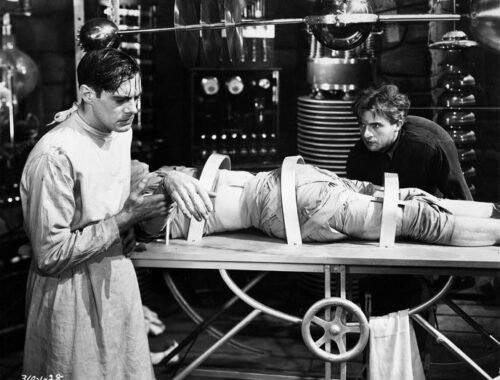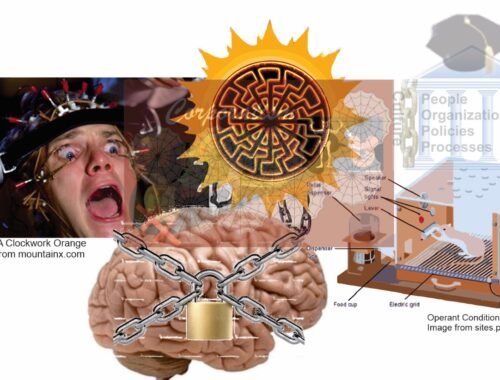
DOGE—Killer Clowns and Virtue
Abstract: The Hippocratic oath tells the doctor to do first no harm. Yet that is what a surgeon has to do. Sometimes we need to do harm to do good. The trick is to balance the harm and good, so the good far outweighs the harm.
If the patient is The Republic, it has arterial bleeding (the unbalanced budget and massive interest payments), necrotizing fasciitis, hernias, pneumonia, and other diseases, some potentially fatal and others bothersome, but not fatal. The first step in lifesaving is to stop the bleeding. The chainsaw approach must be tempered with virtue.
The four cardinal virtues are Temperance, Prudence, Fortitude, and Justice. They should be four lenses through which all cuts and changes should pass. Temperance is about balance and choosing the optimal blend of alternatives.
With this approach, even a chainsaw has a place. But it is the hands of a skilled carver, not a killer clown.
We need to act fast, yes, to stop the bleeding. Like EMTs assessing a situation, our change crew must quickly evaluate the circumstances and conduct triage. We may still do some harm, but at least, like the surgeon removing the spleen, the harm will be contained and of short duration.
The Hippocratic oath tells the doctor to do first no harm. Yet that is what a surgeon has to do. When I had my two hernia repairs, the surgeon cut me open. The one 40 years ago was pretty brutal and I still have problems with the incision site. Now think of a patient with necrotizing fasciitis. In extreme cases, the surgeon may need to amputate a limb to prevent the disease from spreading. Sometimes we need to do harm to do good. The trick is to balance the harm and good, so the good far outweighs the harm.
If the patient is The Republic, it has arterial bleeding (the unbalanced budget and massive interest payments), necrotizing fasciitis, hernias, pneumonia, and other diseases, some potentially fatal and others bothersome, but not fatal. The first step in lifesaving is to stop the bleeding.
Arguably, that is what DOGE is trying to do now. To continue with the analogy, it is like the republic’s spleen is ruptured, causing massive internal bleeding, and must be surgically removed. The problem is, DOGE does not use a scalpel, it uses a chainsaw. Now, complicate the situation even further with a form of hemorrhagic fever, with blood flowing from every orifice. The patient needs a skilled, integrated healthcare team with several specialties. Not unlike the differential diagnostic team on the TV series House.
But that does not seem to be the case with DOGE. They have seem to have a single skill technical team using fractal mapping. Interestingly, 21 staffers in United States Digital Service , which was absorbed into DOGE, resigned. The AP reports:
“The employees also warned that many of those enlisted by Musk to help him slash the size of the federal government under President Donald Trump’s administration were political ideologues who did not have the necessary skills or experience for the task ahead of them.”
The AP site also reported:
“Musk posted on his social media site X that the story was “fake news” and suggested that the staffers were “Dem political holdovers” who “would have been fired had they not resigned.””
The actual resignation letter confirms these statements. It is also somewhat confirmed by DOGE’s missteps. They have had to retract some of their savings claims and there are concerns that some of their personnel cuts impact security and key services.
There is some evidence that Trump and the departments understand this issue. Politico reports:
“The president’s message represents the first significant move to narrow Musk’s mandate. According to Trump’s new guidance, DOGE and its staff should play an advisory role — but Cabinet secretaries should make final decisions on personnel, policy and the pacing of implementation.”
Seems like the administration is walking back a bit from killer clowns. But what I still do not see is virtue.
The four cardinal virtues are Temperance, Prudence, Fortitude, and Justice. They should be four lenses through which all cuts and changes should pass. Temperance is about balance and choosing the optimal blend of alternatives. Prudence is essentially wisdom tempered with caution or, as Aristotle said, practical wisdom. Fortitude is sometimes called courage. It is the courage to take a stand and stick with it. It is also the strength to persevere in the face of adversity. Justice is giving people what they deserve and maintaining the rule of law. It is not a function of mercy. These four virtues work together and balance each other. For example, courage of your convictions can be problematic if the convictions are wrong or not appropriate for the conditions. That is where prudence and justice come into play.
Just as our hypothetical patient with the ruptured spleen hemorrhagic fever and other ailments is a living being, so in a way, is our government. When we fire workers and cut services to which people have grown to depend upon, we affect people. Some who have engaged in fraud and other destructive behavior deserve to be fired and prosecuted. But others, who were benignly doing their jobs and causing few, if any, problems, are people we should be concerned about and work with to get alternative employment. We need to engage our virtue lenses and review every cut to determine second and third-order effects and issues.
These lenses should address at least the following considerations:
- Temperance:
- How do we best balance the pain of cuts?
- Are we affecting a single group or groups at the expense of others?
- Are we properly balancing liberty and equality?
- Prudence:
- How does this change affect our ability to “establish Justice, insure domestic Tranquility, provide for the common defence, promote the general Welfare, and secure the Blessings of Liberty to ourselves and our Posterity”?
- What negative consequences, especially with second and third-order effects, will this change generate?
- Fortitude:
- How will this change be sustained?
- Do the stakeholders have the courage—moral and political—to make the change? Courage flows from education to understand the situation and the skills to act upon the understanding.
- Justice:
- What laws do we need to understand and comply
 with?
with? - What legal and constitutional changes do we need to sustain the change?
- How does this affect the rule of law?
With this approach, even a chainsaw has a place. But it is the hands of a skilled carver, not a killer clown.
We need to act fast, yes, to stop the bleeding. Like EMTs assessing a situation, our change crew must quickly evaluate the circumstances and conduct triage. We may still do some harm, but at least, like the surgeon removing the spleen, the harm will be contained and of short duration.





2 Comments
Pingback:
Pingback: